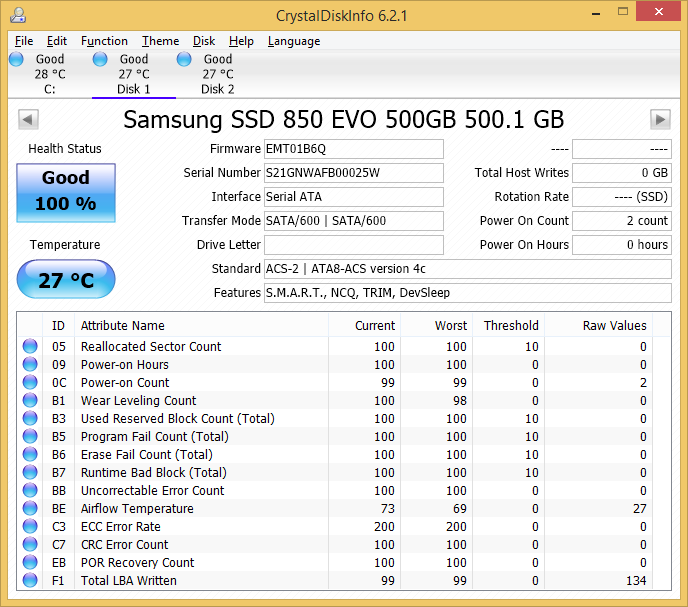

In this review we have the two highest capacities, featuring a Samsung custom controller and a variety of TLC NAND (explained more in detail below). The new Samsung SSD 980 will come in three capacities, 250 GB, 500 GB, and 1 TB. This makes it a new class of product for Samsung in the retail market, one it has never produced before. This kind of drive, with TLC and without DRAM, is already prevalent in the market from other turn-key solution vendors, and this type of drive has been quite popular with OEMs: it allows them to advertise a NVMe SSD without paying the cost of a high-end drive. The SSD 980 is an entry-level NVMe SSD, using TLC NAND with a DRAMless controller. Samsung's First Push into Entry NVMe at Retail The SSD 980 slots into the product stacl at the bottom, but leaves a big enough gap for another, possibly better, model to come in later. Samsung is marketing the SSD 980 as a successor to the 970 EVO. Compared to previous SSDs from Samsung, it lacks any three-letter suffix at the end: it's not a PRO, nor an EVO, or even a QVO drive, because it doesn't fit into the established conventions for those product tiers. They seem to come and go as they please.The new Samsung SSD 980 is the first retail-ready entry-level NVMe SSD from Samsung. So I've also experienced these wonky x570 results. Like you, I've got a z170 intel build with a 960 pro that always gave consistent results. I've attached two captures of two different tests that were performed today, one after the other. I've read several other forum topics with similar reports, and one that ultimately rma'd the drive and went with a different manufacturer. I've tried toggling write caching in windows (no change in results). I'm using the latest AMD x570 drivers (no change in results) and the latest firmware for the gen 4 drive (no change in results). I also notice intermittent slow transfer speeds when transferring large files from my gen4 drive to gen 3 drive. My PCH is watercooled and maxes in the low 40s after repeated tests, and my aorus drive never exceeds 58* during back to back testing. The Gen4 drive gets results ranging from the 1gb writes to 4gb writes.

The gen 3 drive gets consistent results no matter when it's tested. I have a crosshair viii, a 1tb aorus gen4, and 2 tb gen 3 nvme drive. Click to expand.So I've also experienced these wonky x570 results.


 0 kommentar(er)
0 kommentar(er)
